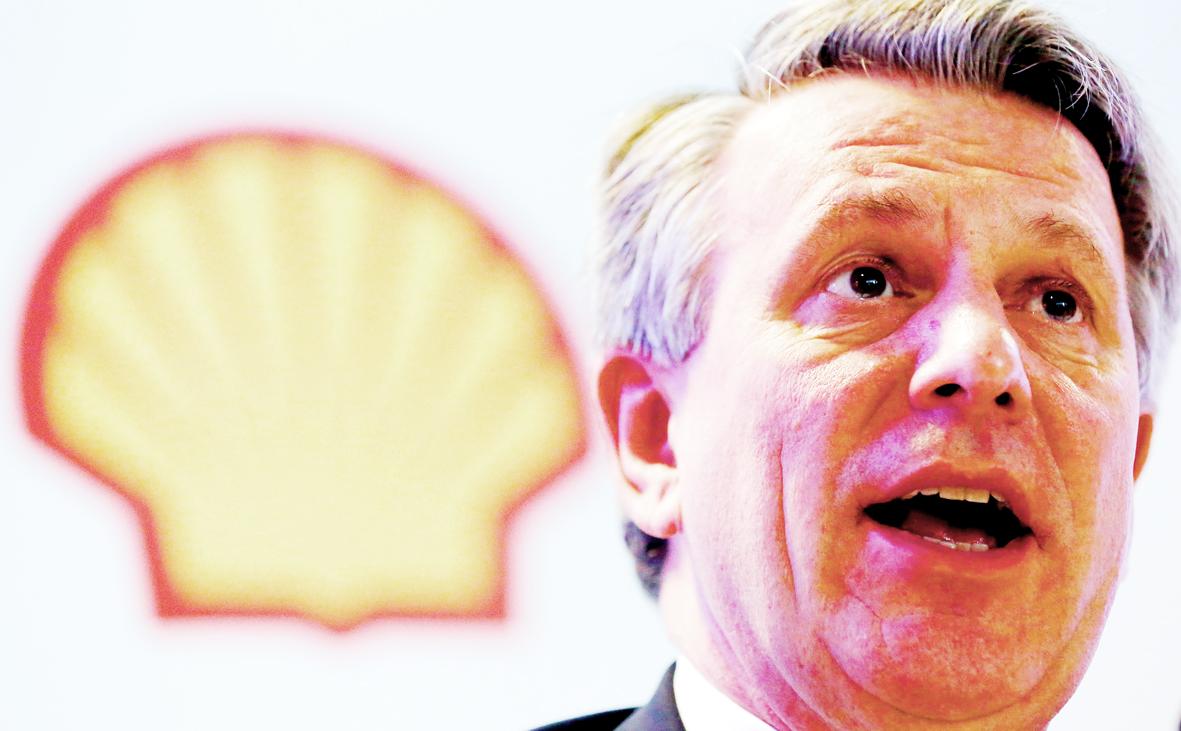Royal Dutch Shell PLC plans to cut as many as 9,000 jobs as the COVID-19 pandemic accelerates a company-wide restructuring into low-carbon energy.
The move reflects the challenge facing Big Oil as the pandemic persists, with some in the industry believing the era of demand growth is already over. As the crisis hastens the shift to cleaner energy, oil majors are axing jobs, taking multibillion-dollar writedowns and even slashing once-sacrosanct dividends.
At Shell, job reductions of 7,000 to 9,000 are expected by the end of 2022, including about 1,500 people taking voluntary redundancy this year, the company said yesterday.

Photo: Reuters
It has about 83,000 employees. Sustainable annual cost savings of US$2 billion to US$2.5 billion are predicted by that time.
“We have to be a simpler, more streamlined, more competitive organization,” Shell chief executive officer Ben van Beurden said in a statement.
“In many places, we have too many layers in the company: too many levels between me, as the CEO, and the operators and technicians at our locations,” he said.
Shell also warned of lower sales in the third quarter, saying that oil product volumes were about 4 million to 5 million barrels a day, down from 6.7 million a day a year earlier.
Oil product trading results would fall short of the historical average and would be “significantly lower” than in the second quarter, it said.
That shows that the oil-trading bonanza that saved Shell’s last set of results is unlikely to be repeated.
The company also expects refining margins to be much lower than in the second quarter.
Its full third-quarter financials, scheduled for Oct. 29, are to include impairment charges of US$1 billion to US$1.5 billion.
Shell’s reorganization is also designed to further its expanded green ambitions.
The firm in April said that it aimed to eliminate all net emissions from its own operations and the bulk of greenhouse gases from fuel it sells to its customers by 2050.
Shell also said that it would ultimately only do business with emission-free companies.

Real estate agent and property developer JSL Construction & Development Co (愛山林) led the average compensation rankings among companies listed on the Taiwan Stock Exchange (TWSE) last year, while contract chipmaker Taiwan Semiconductor Manufacturing Co (TSMC, 台積電) finished 14th. JSL Construction paid its employees total average compensation of NT$4.78 million (US$159,701), down 13.5 percent from a year earlier, but still ahead of the most profitable listed tech giants, including TSMC, TWSE data showed. Last year, the average compensation (which includes salary, overtime, bonuses and allowances) paid by TSMC rose 21.6 percent to reach about NT$3.33 million, lifting its ranking by 10 notches

Popular vape brands such as Geek Bar might get more expensive in the US — if you can find them at all. Shipments of vapes from China to the US ground to a near halt last month from a year ago, official data showed, hit by US President Donald Trump’s tariffs and a crackdown on unauthorized e-cigarettes in the world’s biggest market for smoking alternatives. That includes Geek Bar, a brand of flavored vapes that is not authorized to sell in the US, but which had been widely available due to porous import controls. One retailer, who asked not to be named, because

SEASONAL WEAKNESS: The combined revenue of the top 10 foundries fell 5.4%, but rush orders and China’s subsidies partially offset slowing demand Taiwan Semiconductor Manufacturing Co (TSMC, 台積電) further solidified its dominance in the global wafer foundry business in the first quarter of this year, remaining far ahead of its closest rival, Samsung Electronics Co, TrendForce Corp (集邦科技) said yesterday. TSMC posted US$25.52 billion in sales in the January-to-March period, down 5 percent from the previous quarter, but its market share rose from 67.1 percent the previous quarter to 67.6 percent, TrendForce said in a report. While smartphone-related wafer shipments declined in the first quarter due to seasonal factors, solid demand for artificial intelligence (AI) and high-performance computing (HPC) devices and urgent TV-related orders

MINERAL DIPLOMACY: The Chinese commerce ministry said it approved applications for the export of rare earths in a move that could help ease US-China trade tensions Chinese Vice Premier He Lifeng (何立峰) is today to meet a US delegation for talks in the UK, Beijing announced on Saturday amid a fragile truce in the trade dispute between the two powers. He is to visit the UK from yesterday to Friday at the invitation of the British government, the Chinese Ministry of Foreign Affairs said in a statement. He and US representatives are to cochair the first meeting of the US-China economic and trade consultation mechanism, it said. US President Donald Trump on Friday announced that a new round of trade talks with China would start in London beginning today,